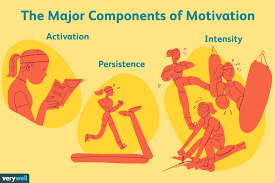Sleep tracking devices have become increasingly popular in recent years, as people have become more aware of the importance of good sleep for their health and well-being. These devices come in a variety of forms, from wearable wristbands to bedside sensors, and they all aim to provide users with insights into their sleep patterns.
One of the main benefits of using a sleep tracking device is that it can help you identify any issues that may be affecting your sleep. For example, if you find that you are waking up frequently during the night, or that you are not getting enough deep sleep, this could indicate that you have an underlying problem such as sleep apnea or insomnia. By tracking your sleep over time, you can identify these issues and take steps to address them.
Another benefit of sleep tracking devices is that they can help you establish healthy sleep habits. For example, many devices will track how long it takes you to fall asleep and how long you spend in each stage of the sleep cycle. This information can be used to develop a bedtime routine that promotes better quality sleep.
There are also some potential drawbacks to using a sleep tracking device. One concern is that these devices may not always be accurate in their measurements. For example, if you move around a lot during the night or if your partner moves around in bed, this could affect the accuracy of the data collected by the device.
Another concern is that some people may become overly fixated on their sleep data and start to worry excessively about getting enough rest. This could lead to increased anxiety and stress around bedtime, which could actually make it harder to fall asleep.
Despite these concerns, many people find that using a sleep tracking device is a useful tool for improving their overall health and well-being. If you are interested in trying out one of these devices for yourself, there are many options available on the market today at various price points.
Ultimately, whether or not a sleep tracking device is right for you will depend on your individual needs and preferences. If you struggle with sleep issues or are simply interested in optimizing your sleep habits, it may be worth considering investing in one of these devices to see how it can help you improve your overall quality of life.
Maximizing the Benefits of Sleep Tracking Devices: 5 Essential Tips
- Set realistic goals
- Use the data to create better habits
- Find the right device for you
- Track other activities
- Monitor changes over time
Set realistic goals
When it comes to using sleep tracking devices, one important tip is to set realistic goals for yourself. While it can be tempting to aim for the perfect night’s sleep every night, this is not always a realistic expectation.
Instead, try setting goals that are achievable and manageable for you. For example, if you currently only get six hours of sleep per night, try setting a goal of increasing that to seven hours per night. Or, if you tend to wake up frequently during the night, set a goal of reducing the number of wake-ups by one or two per night.
By setting realistic goals for yourself, you are more likely to feel motivated and encouraged as you work towards improving your sleep habits. You may also be less likely to become discouraged or frustrated if you don’t see immediate results.
It’s also important to remember that sleep patterns can vary from night-to-night and from person-to-person. What works for one person may not work for another. So, don’t be too hard on yourself if you don’t meet your goals every single night.
Ultimately, the goal of using a sleep tracking device should be to gain insight into your own sleep patterns and make changes that will improve your overall quality of life. By setting realistic goals and working towards them at your own pace, you can achieve better sleep habits over time and enjoy the many benefits that come with getting a good night’s rest.
Use the data to create better habits
Sleep tracking devices can provide valuable insights into our sleep patterns, but the real benefit comes from using this data to make positive changes in our daily habits. By analyzing the information collected by these devices, we can identify areas where we can improve our sleep hygiene and create a more conducive environment for restful sleep.
For example, if the data shows that we are consistently waking up at the same time each night, we may want to consider adjusting our bedtime routine to reduce stress and promote relaxation before bed. This could involve practicing meditation or breathing exercises, avoiding screen time before bed, or creating a calming bedtime ritual.
Similarly, if we notice that we are not getting enough deep sleep, we may want to focus on improving our sleep environment. This could involve investing in a comfortable mattress and pillows, adjusting the temperature and lighting in our bedroom, or using white noise machines or earplugs to block out distractions.
By using the data collected by sleep tracking devices to identify areas where we can improve our habits and create a more restful sleep environment, we can take concrete steps towards improving our overall health and well-being. So instead of just collecting data for its own sake, let’s use it as a tool to create better habits and get the most out of every night’s rest.
Find the right device for you
When it comes to sleep tracking devices, finding the right device for your needs is crucial. With so many options available on the market today, it can be overwhelming to choose the one that’s right for you. Here are some tips to help you find the perfect sleep tracking device:
- Consider your budget: Sleep tracking devices come in a range of prices, from affordable wristbands to high-end sensors. Determine how much you’re willing to spend before you start shopping.
- Think about your sleep habits: Do you move around a lot during the night? Do you share a bed with a partner? Consider these factors when choosing a device, as some may be more accurate than others depending on your specific sleep habits.
- Look for features that matter to you: Do you want a device that tracks your heart rate or body temperature? Do you prefer something that’s easy to use and syncs with your phone? Make a list of features that matter most to you and look for devices that offer them.
- Read reviews: Before making a purchase, read reviews from other users to get an idea of how well the device performs and whether it’s worth the investment.
By taking these factors into consideration, you can find a sleep tracking device that meets your individual needs and helps improve the quality of your sleep. Remember, everyone’s sleep habits are different, so what works for someone else may not work for you. Take the time to find the right device, and enjoy better quality rest as a result!
Track other activities
When it comes to sleep tracking devices, tracking other activities besides sleep can provide valuable insights into how your daily routine affects your sleep quality. For example, tracking your exercise habits can help you see how physical activity impacts your ability to fall asleep and stay asleep.
Similarly, tracking your caffeine and alcohol intake can help you identify any patterns that may be affecting your sleep. If you find that you have trouble falling asleep after drinking coffee or that you tend to wake up frequently after drinking alcohol, this information can be used to adjust your habits and improve the quality of your sleep.
Tracking other activities such as screen time and stress levels can also provide valuable insights into how these factors impact your sleep. For example, if you find that spending time on electronic devices before bed makes it harder for you to fall asleep, this could be a sign that you need to limit your screen time in the evenings.
Overall, tracking other activities in addition to sleep can help you develop a more comprehensive understanding of how your lifestyle affects your sleep quality. By making adjustments based on this information, you can improve the overall quality of your rest and wake up feeling refreshed and energized each day.
Monitor changes over time
When using a sleep tracking device, it’s important to remember that changes in your sleep patterns may not happen overnight. It’s essential to monitor changes over time to get an accurate picture of your sleep quality and identify any underlying issues.
By tracking your sleep patterns over several weeks or even months, you can start to see trends and patterns in your sleep habits. For example, you may notice that you consistently wake up at the same time every night or that you tend to have more deep sleep on certain days of the week.
Monitoring changes over time can also help you identify any external factors that may be affecting your sleep. For example, if you notice that your sleep quality declines when you eat a heavy meal before bed, you can adjust your eating habits accordingly.
It’s important to keep in mind that there will be some natural variation in your sleep patterns from night to night. However, by monitoring changes over time, you can start to distinguish between normal fluctuations and more significant issues.
Overall, using a sleep tracking device can be a valuable tool for improving your overall health and well-being. By monitoring changes over time, you can develop a better understanding of your unique sleep needs and make adjustments as needed to ensure that you are getting the restorative rest that your body needs.



